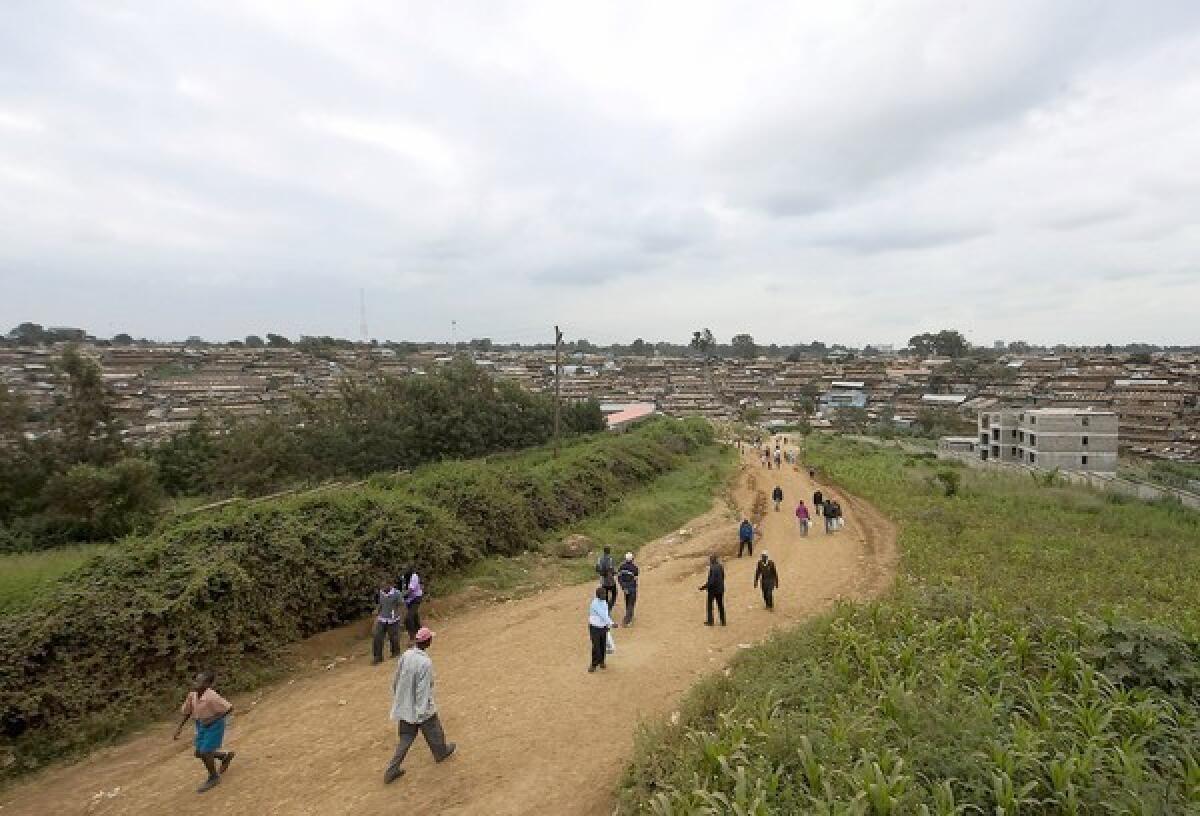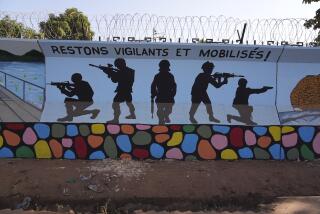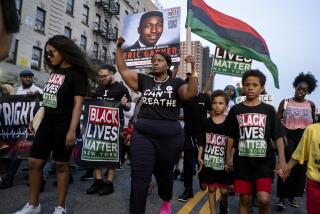Vigilante justice brings terror to 2 African nations

NAIROBI, Kenya — The voices were loud and harsh outside the thin walls of the tin shack where Musa Otieno, a boy of 12, tried to sleep in the Nairobi slum of Kibera.
A stranger had wandered into the neighborhood. A mob gathered around him with machetes and knives, shouting, “Thief, thief!” The boy huddled in bed, listening to the stranger pleading.
“The man was saying, ‘I’m not a thief, I’m looking for someone,’ but no one gave him a chance to explain.”
The boy heard the man’s screams as the mob beat him. He heard the sound of machetes, “like someone was cutting something.” And then, silence.
Now 35, married with a child of his own, Otieno learned a chilling lesson that has stayed with him all his life: “Be careful, or it could happen to me.”
It might have been a premonition.
In South Africa, the premier of Western Cape province last month set up an inquiry into vigilante killings, with at least 15 in one Cape Town township since January. The dead included nine suspected thieves who were “necklaced,” a mob punishment often meted out against suspected collaborators in the apartheid era, in which tires filled with gasoline were placed around victims’ necks and set alight.
Police failures are a major reason for the vigilante killings, said Gavin Silber of the Cape Town-based Social Justice Coalition, and they are a scourge in many sub-Saharan countries with unresponsive or corrupt authorities.
“We work in Khayelitsha, which is a South Africa township, and we hear stories about abuse of police powers almost on a daily basis, whether it’s beating people, police standing by while a crime is committed or police firing wildly into a crowd,” he said in a phone interview. “As a result of that, communities have lost faith in police.
“If you go to the police station to report a case of rape, you can be expected to be treated very poorly. You might be chased out of the police station,” Silber said. “People see their friends or family getting raped or beaten. People get very frustrated. They don’t see an alternative [to vigilante justice].”
But the vigilantes are just as corrupt and unpredictable as the cops, shaking down residents — and exacting revenge.
The vigilantes often belong to neighborhood “committees,” like a grim mutant of Neighborhood Watch.
“There are street committees set up,” Silber said of Khayelitsha. “Sometimes it’s a case of somebody just seeing someone running away from a scene. Otherwise it’s more orchestrated. Someone will say, ‘Someone stole this from me.’”
Silber said at times police seemed to tacitly endorse the vigilantes, failing to intervene and allowing the mob the kill its victim.
In many slum settlements, he said, the population never sees much evidence of governance aside from the police, who are rarely supportive and often abusive.
“We often say the only time people in informal settlements see the state is when it comes to violate their rights.”
There’s little public sympathy for the victims of vigilante justice. When a South African newspaper published the story of an alleged thief stoned to death in Katlehong township near Johannesburg in June, most people commenting on the article were full of praise for the attackers.
“Awesome stuff. Well done South Africa,” one wrote. “That is justice,” another wrote. “End of story.”
*
On a sunny Saturday in Kibera, the risks of crime or punishment seem subsumed by the daily rituals of life. Boys play marbles next to women cooking French fries to sell on the red dirt track. A dog noses through garbage. A mad woman wanders, crying. A mother bends over a plastic bucket, lathering her toddler. Music is everywhere, loud and infectious.
Otieno earns about $45 a month cleaning toilets in his area and plays soccer for a local club. His wife and son live with her parents because Otieno doesn’t have his own shack and must share with a friend.
With no job and no prospects of getting a house for his family, “I feel like a failure,” he said. “I can’t bring up my family together.”
As a child, Otieno witnessed other mob attacks from time to time.
“Often they use polyurethane bags,” he said. “They tie you up and put you down and bring firewood and put these polyurethane bags on top of you and light it. It’s like petrol.”
Police would eventually arrive at the scene, he said, but only in time to remove the corpse.
Like many slums in sub-Saharan Africa, people cannot rely on the state. They want electricity, they hijack it. But beneath the feisty independence there’s a sinister undercurrent.
In Kibera, most of the mob attacks are carried out by young men in small vigilante groups, who rely on informants — often teenagers — who mooch through the alleys searching for trouble. One gang calls itself the Nyuki, meaning bees. Another is called Baghdad. They “police” the neighborhood and demand payments from residents.
“They want money,” Otieno said. “If they see you dressing well for two or three months, they start calling you a thief.
“They’re sometimes paid to beat you up. People are afraid of them, but there’s nothing we can do about it.”
One morning three years ago, a group of young men approached him.
“It was a mob, more than 50. My neighbor said I wanted to steal his sound system. They came to me and said, ‘We hear you’re a thief.’ I said, ‘No, I’m not a thief.’ My neighbor said, ‘He’s a thief.’
“We argued. Some started beating me. Some started taking my things away. They beat me for 20 minutes, but that 20 minutes was like the whole day.”
He was saved only by chance when a man who knew Otieno told the mob he wasn’t a thief, but was a very good soccer player. He fled his shack, which had been ransacked, and moved to a different part of the sprawling slum.
He often relives the attack, fearful that one day, if someone doesn’t like the look of him, it will happen again. The next time, he fears, he might not survive.
“Those people,” he said, “are heartless.”
More to Read
Start your day right
Sign up for Essential California for news, features and recommendations from the L.A. Times and beyond in your inbox six days a week.
You may occasionally receive promotional content from the Los Angeles Times.






